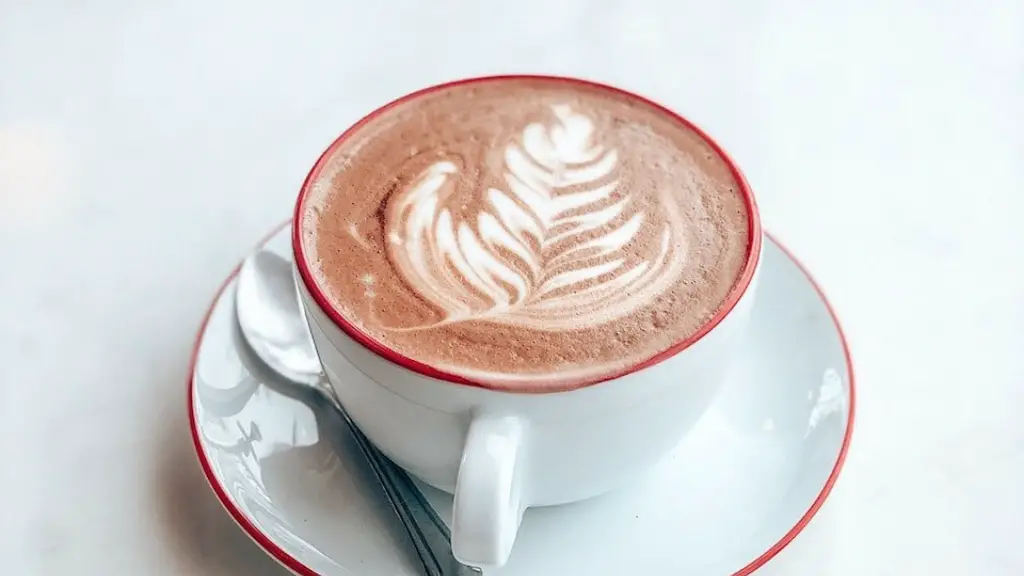There are two schools of thought when it comes to coffee and heartburn: Depending on who you ask, coffee often gets either the blame or a free pass. Despite conflicting opinions, there’s some evidence that caffeine is a culprit in heartburn symptoms, although other components of coffee may also be to blame.
Caffeine is a stimulant that causes the muscles in the sphincter (the barrier between the esophagus and stomach) to relax. When this happens, stomach acid can escape back into the esophagus, leading to heartburn and irritation. One study found that drinking coffee increased the risk of heartburn symptoms in some people. Other research suggests that coffee can increase the acidity of the stomach contents, which might make it easier for stomach acid to move up into the esophagus.
But caffeine isn’t the only possible culprit when it comes to coffee and heartburn. Coffee itself contains several compounds, including certain types of oils and acids, which may also contribute to heartburn. Additionally, it’s possible that the temperature of the coffee could also be a factor in triggering heartburn.
Cautionary Practices for Those Experiencing Heartburn Symptoms
Those who are already prone to heartburn should take extra caution when consuming coffee. If you’re someone who notices heartburn symptoms when you drink coffee, you may want to consider drinking a decaf version or trying out a different kind of beverage. Additionally, try to avoid adding milk or other dairy products to your coffee, as they can also induce heartburn in some individuals.
Another way to reduce your risk of heartburn is to drink your coffee in moderation. Caffeine is a stimulant, and consuming too much can trigger heartburn or other gastrointestinal distress. Additionally, it’s important to avoid drinking coffee in the late evening, as this can make it harder for your body to relax and allow for a good night’s sleep.
Finally, it’s important to recognize that some people are more sensitive to the effects of caffeine than others. If you’re someone who has more severe symptoms after drinking coffee, it may be best to avoid coffee altogether. A discussion with your healthcare provider can help you determine which beverages are best for your individual needs.
Is There a “Safe” Way to Drink Coffee?
Although coffee can often lead to heartburn, it is possible to enjoy coffee while decreasing your risk of heartburn. For starters, consider lowering your daily coffee consumption. Limiting yourself to one cup a day or switching to a decaffeinated coffee can help reduce the risk of heartburn. Additionally, it’s a good idea to stay away from acidic and sugary coffee additives, as they can increase your risk of heartburn.
If you’re struggling to find a type of coffee that won’t trigger heartburn, you may want to consider exploring some new options. There are various types of coffee available that are formulated to be low-acid or decaffeinated, so you may be able to find something that works for you. Additionally, certain brands of coffee offer blends specifically designed for people who experience heartburn.
In the end, the key is to experiment and find the coffee option that works best for you. Whether you opt for a decaffeinated brew or choose a low-acid blend, it’s important to listen to your body and recognize when your coffee consumption is leading to heartburn.
What Other Alternatives Are There to Coffee?
If you’re looking for an alternative to coffee, there are plenty of options. Tea is a great option, especially herbal varieties, as they tend to be less acidic and gentler on the stomach. Or, if you’re feeling adventurous, you may want to try cold-brewed coffee. It’s lower in acidity than regular coffee, so it may be a good option for those who experience heartburn.
If coffee just isn’t your thing, there are plenty of other beverages that are not only tasty, but also beneficial for heartburn sufferers. Nut milks, such as almond or coconut, make great coffee substitutes and can be served hot or cold. Additionally, beverages such as kombucha and kefir are widely available and are filled with beneficial bacteria that can help promote digestive health.
For those who love coffee but find that it triggers heartburn, you may want to consider trying out some alternative brewing methods, such as the French press or a pour-over. These options can yield a smooth, flavorful cup of coffee that’s lower in acidity than traditional brewing methods.
How to Manage Heartburn Symptoms Related to Coffee
If you’re experiencing heartburn due to coffee, the first step is to reduce or stop your coffee consumption to see if this helps minimize your symptoms. Additionally, it’s important to keep an eye on your diet. Certain foods, such as fried or greasy foods, tend to worsen heartburn symptoms, and should therefore be avoided.
It’s also a good idea to remain mindful of your posture. Sitting or standing for too long can put pressure on the sphincter and make it easier for stomach acid to move up into the esophagus. Taking regular breaks and maintaining good posture throughout the day can help reduce your risk of heartburn.
Finally, it’s important to recognize that some people may be more sensitive to the effects of caffeine than others. If you find that your heartburn symptoms don’t improve despite making lifestyle changes, it may be best to avoid coffee completely. There are plenty of other delicious and healthy options that can help keep your heartburn at bay.
Natural Remedies for Heartburn
If your heartburn symptoms persist, it may help to incorporate natural remedies into your regular routine. Herbal teas such as chamomile and peppermint can soothe the digestive tract and help to ease heartburn symptoms. Additionally, natural supplements such as probiotics, ginger, and turmeric can help to balance gut health and aid digestion.
Finally, incorporating foods rich in vitamins and minerals, such as fresh fruits and vegetables, can help boost overall digestive health and reduce the risk of heartburn occurrence. Eating small meals throughout the day, avoiding late-night snacking, and chewing food slowly can also help with your digestive process and keep heartburn symptoms at bay.
Can Drinking Coffee Cause More Serious Health Problems?
Although there is some evidence linking coffee consumption to heartburn, it’s important to note that there has not yet been any conclusive evidence to suggest that coffee can cause more serious health problems. In fact, some research has shown that drinking coffee in moderation can actually have some health benefits, including a decreased risk of certain types of cancer and diabetes.
In the end, the key is to practice moderation and listen to your body. Try to maintain a healthy lifestyle, and be mindful of which foods and beverages trigger heartburn and other digestive issues. If you do find yourself regularly experiencing heartburn, it may be best to avoid coffee altogether.




